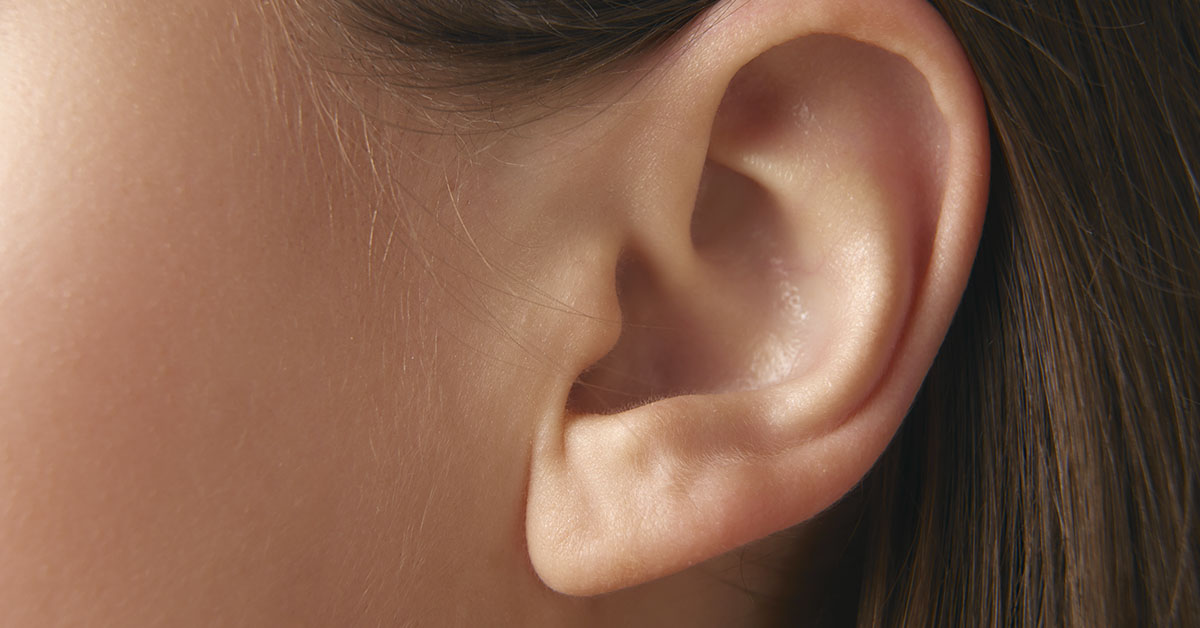How often do you think about your ears? Chances are, unless they’re bothering you in some way, the answer is probably never. Like all parts of our bodies, your ears can actually give you hints as to things going on in your body that you might want to pay attention to. This is what your ears say about your health.
How Ears Reflect Health
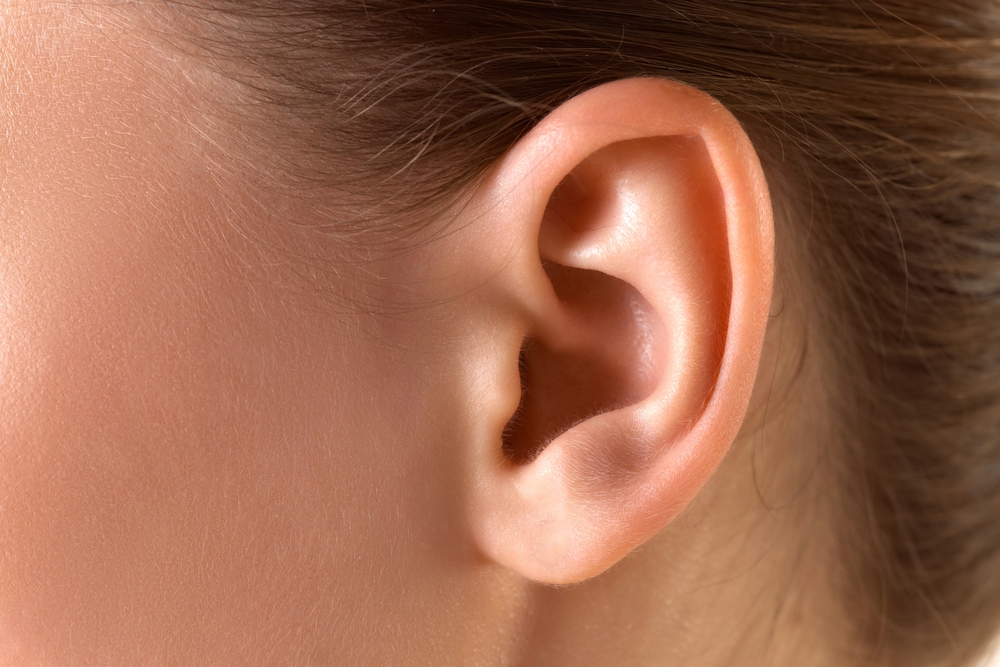
Much of what your ears say about your health comes from the shape, position, and other characteristics of the actual appearance of your ears. There are some signs, however, that have to do with your hearing or how your ears feel. Understanding these signs can help you to ensure timely care should something actually be needing the attention of a healthcare professional.
Earlobe Crease
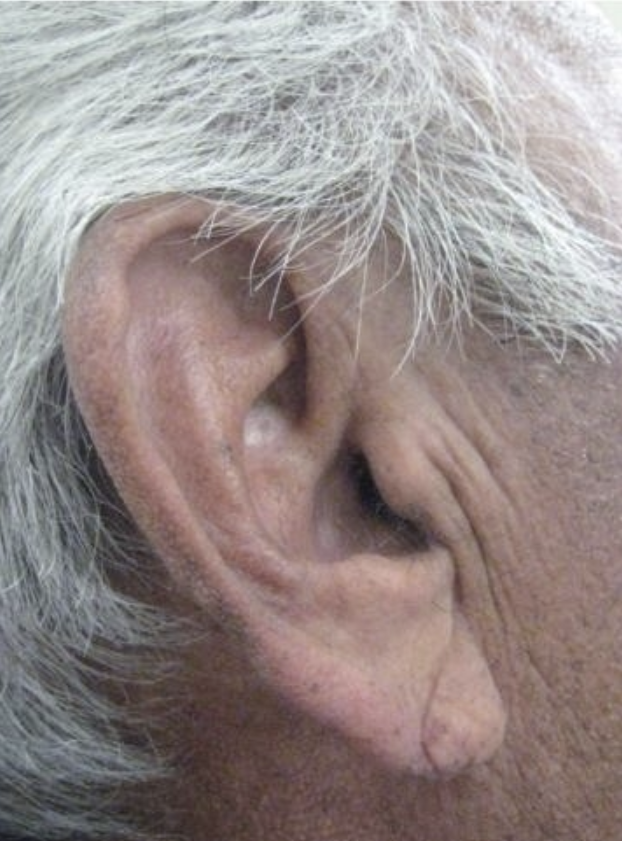
Also known as Frank’s sign, this is a diagonal crease in your ear lobe that may be a sign of heart disease. It is named after the doctor who first noticed it. Scientists still don’t understand exactly what causes this crease to occur. On top of that, not everyone who has the crease will have heart disease, either. If you notice you have this crease, talk to your doctor about it. Frank’s sign, in combination with some other parameters he will look at, may prompt further evaluation for protecting your health.
Read More: 11 Things Your Tongue is Telling You About Your Health
Pits and Folds
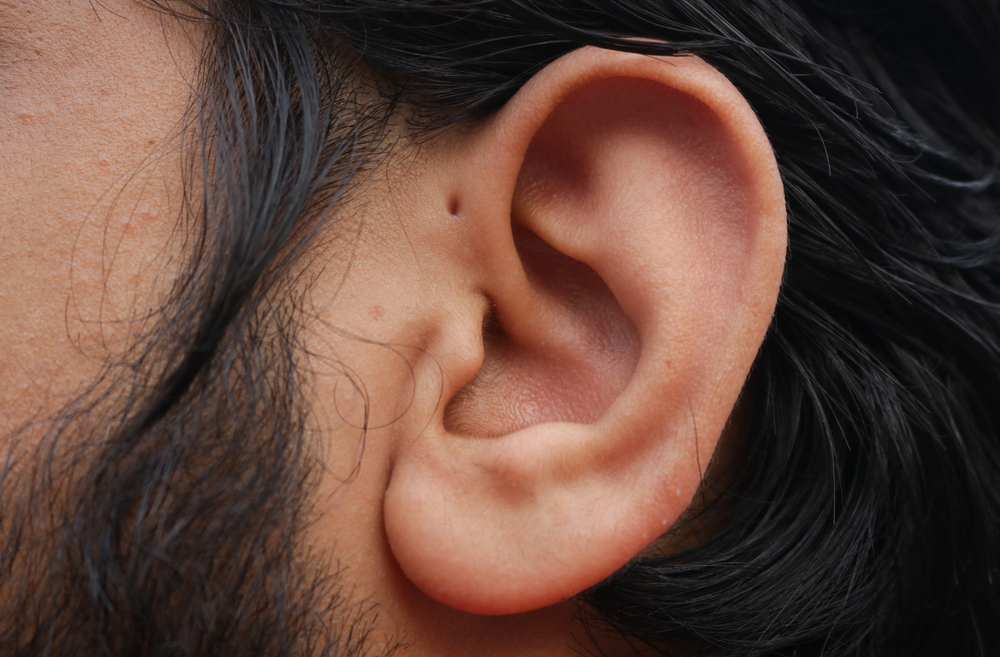
Babies can be born with conditions that affect how they develop. One of these is called Beckwith-Wiedemann syndrome, which causes creases or small holes around the ear. Other characteristics associated with this syndrome include the baby being bigger than usual, having a large tongue, as well as low blood sugar. This syndrome doesn’t cause major health problems for most people who have it, but as the child grows, one side of their body may be larger than the other. This can make them more likely to develop certain tumors.
Low-Set Ears
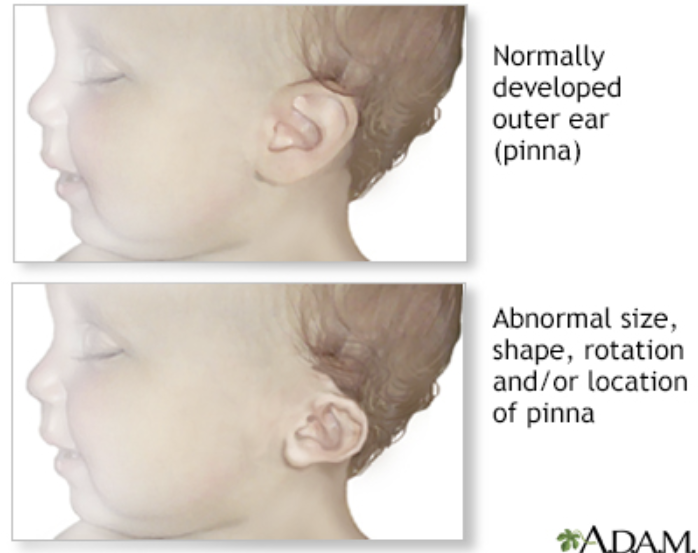
Low-set ears can often be a sign of conditions such as Down and Turner syndromes, as problems with a specific chromosome cause both the condition and the low-set ears. People with Down syndrome also have other physical differences and developmental issues. Turner syndrome can cause problems with how the head and the neck form, and issues with growth and puberty. There are also two, rarer conditions that can cause low-set ears and developmental problems. These are Shprintzen-Goldberg and Jacobsen syndromes.
Missing External Ear
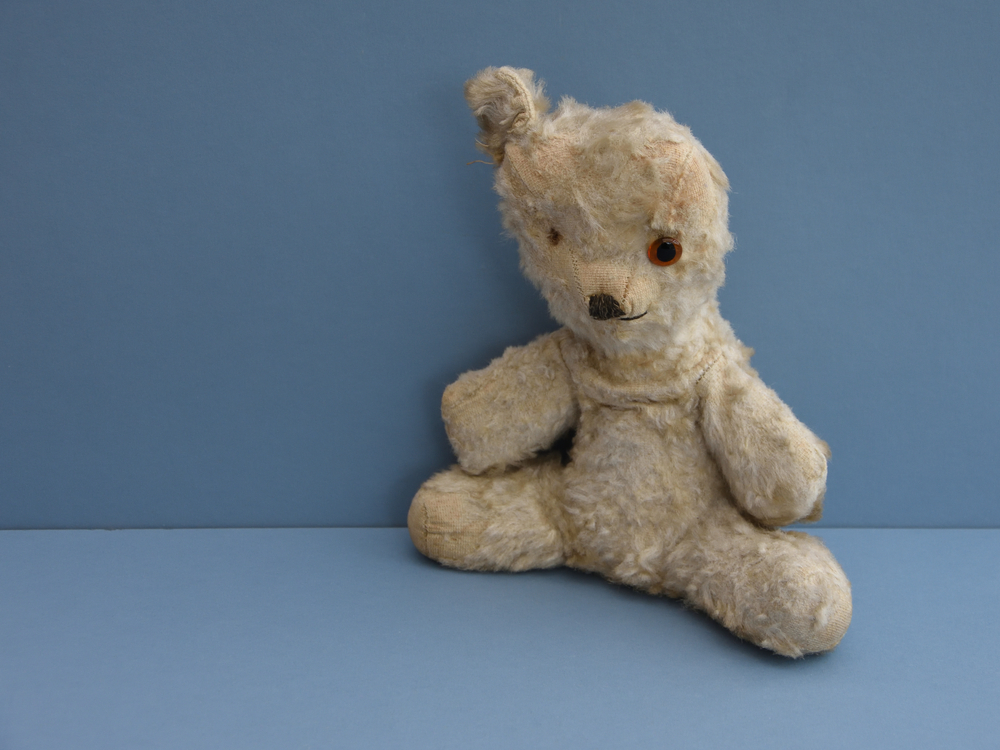
If a baby is born with a missing ear, this could be a sign of anotia. This is a condition that you are born with, not one that you can develop outside of the womb. Doctors still don’t know exactly what causes it, but they believe that environmental factors and taking certain medications during pregnancy may play a role. It can happen by itself or along with another genetic condition. In most cases, doctors can form an outside ear with plastic surgery.
Read More: What Is Lunula? Your Lunula, Fingernails, and What They Say About Your Health
Unusual Ear Shape

Unusual ear shapes, particularly for babies, can be a sign of problems with kidney function. This is even if it’s just a skin tag on their ear. The reason is because the kidneys develop at the same time as the ears in the womb. If your doctor notices it on your newborn, they may want to test your baby’s kidneys or do an ultrasound to make sure that there aren’t any problems.
Ringing in the Ears (Tinnitus)
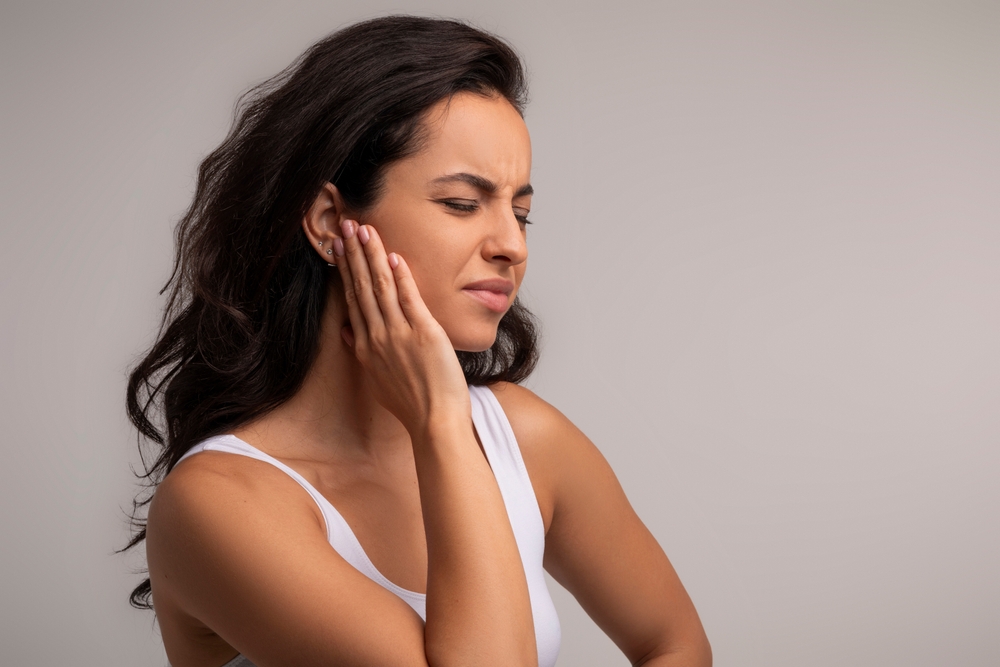
Tinnitus is usually caused by something directly related to your ears. It can be wax buildup or even simply being around loud noises. It can also be a sign of a problem with the joint where your jawbone meets your skill (the temporomandibular joint, or TMJ), or an injury to your neck or head, among other things. If you hear ringing, buzzing, roaring, clicking, or hissing sounds, see your doctor to find out what’s going on.
Itchy Ears
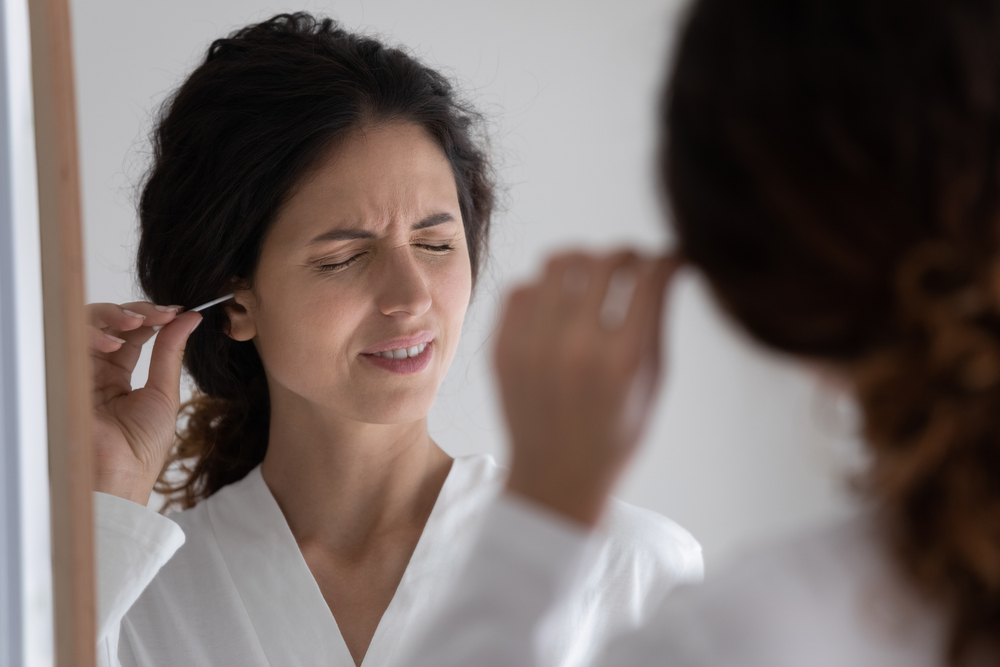
Itchy ears are most often caused by a fungal ear infection or other ear irritation. Another possible reason is psoriasis, which happens when your immune system attacks your skin by mistake. It can be very painful if you have it on your ears because the skin there is very thin. It can occur both inside and outside of your ear and may lead to a buildup of dead skin that makes it hard for you to hear. There is currently no cure for psoriasis, but your doctor can help you to manage the symptoms.
Earache
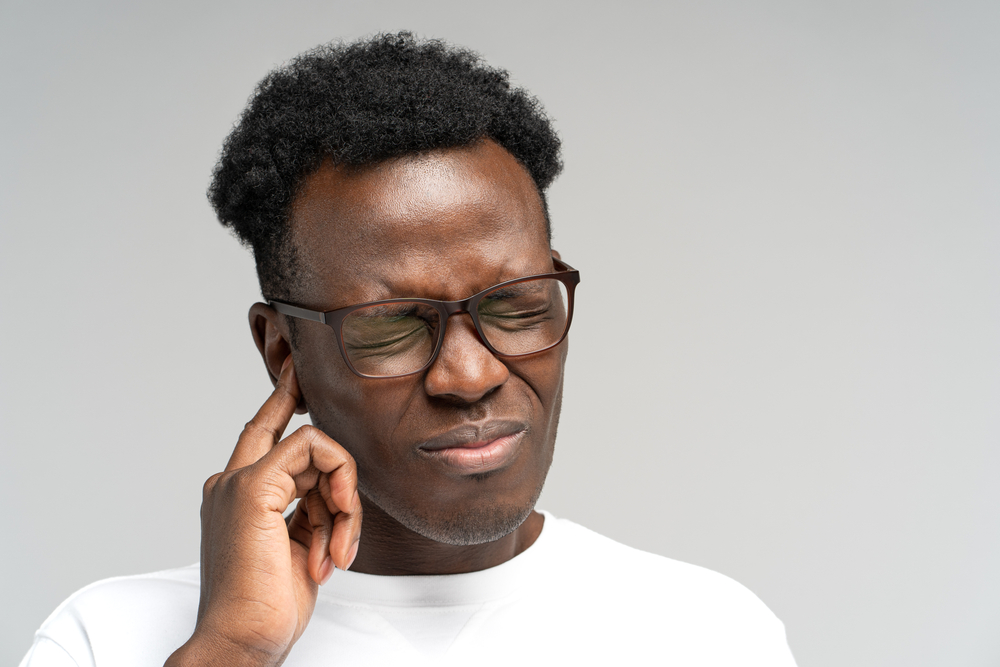
There are many reasons why you might have an earache. It can be an ear infection itself, but also it could be a throat infection, and buildup of earwax or fluid, an abscessed tooth, or because you are grinding your teeth at night. If you or your child has an earache that doesn’t get better in a day or two, or is accompanied by fever, vomiting, throat pain, discharge from the ear, or swelling around it, go and see your doctor. If your child is younger than 6 months and you suspect that they may have an earache, call your pediatrician.
The Bottom Line

The ears are something that we often don’t even really notice or think about, but they can actually provide us with important information about our health. Paying attention to what’s going on with your ears can help you to get help quicker, so that small problems don’t become big ones. For certain conditions, understanding the symptoms that can present in the ears can prevent you from unnecessary suffering, simply because you didn’t know. If you or your child have any of these ear issues, go visit your doctor as soon as possible.
Disclaimer: This information is not intended to be a substitute for professional medical advice, diagnosis or treatment and is for information only. Always seek the advice of your physician or another qualified health provider with any questions about your medical condition and/or current medication. Do not disregard professional medical advice or delay seeking advice or treatment because of something you have read here.
Read More: Doctor Uncovers A Telltale Sign In Your Fingernails That May Predict Your Life Expectancy
